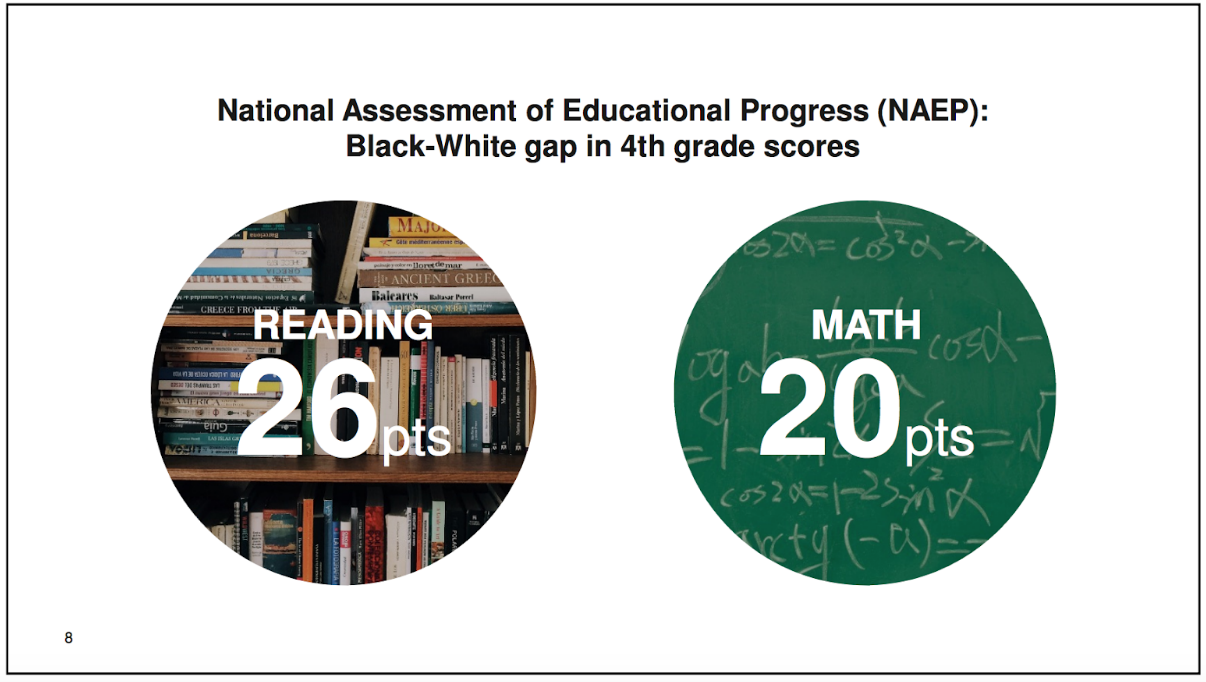
Jun 1, 2018 12:00:00 AM
 But given how tumultuous the last two years were in Chicago—the financial woes and the personnel upheaval—it’s a bit of shocker that CPS didn’t slide backwards on this exam. School leaders also predicted that the change in the test, from paper-and-pencil to all computer-based, would make it harder for kids and cause scores to dip. But that didn’t happen in CPS. "The fact that test scores are flat is actually good news,” said Elaine Allensworth, director of the
University of Chicago Consortium on School Research, which has been studying Chicago’s school reforms and collecting data on the district since 1990. “Given all the disruptions and the financial trouble, the fact it hasn’t lost ground is actually pretty good." Allensworth suggested that the district was able to keep scores stable by keeping its focus on a handful of key improvements during tough times, including preserving a robust teacher evaluation program, better training for math instruction, staying the course on Common Core learning standards, and continuing to use data strategically. It wasn’t too long ago that Chicago was among the worst-performing urban districts in the nation. Now Chicago’s average scores
are indistinguishable from the average of all big districts, many of which are better funded and have far fewer students living in low-income families. When the nation first started measuring big-city educational progress in 2003, only a tenth of Chicago’s fourth- and eighth-graders
scored as proficient in mathematics, which is considered a high bar and an important predictor of college readiness. Fourteen years later, that percentage has tripled. The number of fourth- and eighth-graders CPS students scoring at or above basic in math has also climbed significantly during this time. Here’s another piece of good news buried in these results that bodes well for the district’s sustained improvement, especially among a group of kids who struggle with the largest achievement gaps nationwide—students who qualify for free and reduced-price lunch. If you look at how Chicago’s low income eighth-graders score on math, their average score is
two points higher than the national average for all low-income students—and
in reading, Chicago‘s eighth-graders match the national average for low-income students. This is huge, because it means Chicago is making meaningful and authentic strides with a vulnerable group of learners
and keeping pace with higher performing districts in the suburbs, rural areas and other cities. In fact the only big city that does better with its low income eighth-graders is Boston. All in all, the results on the Nation’s Report Card suggest that Chicago’s steady progress is authentic, and the district needs to stay the course on common-sense reforms that have moved the needle so dramatically in the last decade.
But given how tumultuous the last two years were in Chicago—the financial woes and the personnel upheaval—it’s a bit of shocker that CPS didn’t slide backwards on this exam. School leaders also predicted that the change in the test, from paper-and-pencil to all computer-based, would make it harder for kids and cause scores to dip. But that didn’t happen in CPS. "The fact that test scores are flat is actually good news,” said Elaine Allensworth, director of the
University of Chicago Consortium on School Research, which has been studying Chicago’s school reforms and collecting data on the district since 1990. “Given all the disruptions and the financial trouble, the fact it hasn’t lost ground is actually pretty good." Allensworth suggested that the district was able to keep scores stable by keeping its focus on a handful of key improvements during tough times, including preserving a robust teacher evaluation program, better training for math instruction, staying the course on Common Core learning standards, and continuing to use data strategically. It wasn’t too long ago that Chicago was among the worst-performing urban districts in the nation. Now Chicago’s average scores
are indistinguishable from the average of all big districts, many of which are better funded and have far fewer students living in low-income families. When the nation first started measuring big-city educational progress in 2003, only a tenth of Chicago’s fourth- and eighth-graders
scored as proficient in mathematics, which is considered a high bar and an important predictor of college readiness. Fourteen years later, that percentage has tripled. The number of fourth- and eighth-graders CPS students scoring at or above basic in math has also climbed significantly during this time. Here’s another piece of good news buried in these results that bodes well for the district’s sustained improvement, especially among a group of kids who struggle with the largest achievement gaps nationwide—students who qualify for free and reduced-price lunch. If you look at how Chicago’s low income eighth-graders score on math, their average score is
two points higher than the national average for all low-income students—and
in reading, Chicago‘s eighth-graders match the national average for low-income students. This is huge, because it means Chicago is making meaningful and authentic strides with a vulnerable group of learners
and keeping pace with higher performing districts in the suburbs, rural areas and other cities. In fact the only big city that does better with its low income eighth-graders is Boston. All in all, the results on the Nation’s Report Card suggest that Chicago’s steady progress is authentic, and the district needs to stay the course on common-sense reforms that have moved the needle so dramatically in the last decade.
Tracy Dell’Angela is a writer, education nonprofit executive director and a mom passionate about education improvements. Previously, Tracy was Director of Outreach and Communications for the Institute of Education Sciences (IES) at the U.S. Department of Education in Washington, D.C. She came to IES from the University of Chicago Consortium on Chicago School Research, which produces research that drives improvement in Chicago and nationwide. She also served as Senior Project Director for 100Kin10 at the University of Chicago and was Director of Program Investments and Partnerships for the Chicago Public Education Fund. Tracy spent most of her career as an award-winning newspaper journalist, including 12 years at the Chicago Tribune as an education reporter covering national policy and the Chicago Public Schools. A Californian by birth but a Chicagoan in spirit, Tracy attended University of Chicago as a master's student in social sciences and earned a B.A. in journalism and political science from San Diego State University.
The story you tell yourself about your own math ability tends to become true. This isn’t some Oprah aphorism about attracting what you want from the universe. Well, I guess it kind of is, but...
If you have a child with disabilities, you’re not alone: According to the latest data, over 7 million American schoolchildren — 14% of all students ages 3-21 — are classified as eligible for special...
The fight for educational equity has never been just about schools. The real North Star for this work is providing opportunities for each child to thrive into adulthood. This means that our advocacy...
Your donations support the voices who challenge decision makers to provide the learning opportunities all children need to thrive.
Ed Post is the flagship website platform of brightbeam, a 501(c3) network of education activists and influencers demanding a better education and a brighter future for every child.
© 2020–2024 brightbeam. All rights reserved.
Leave a Comment